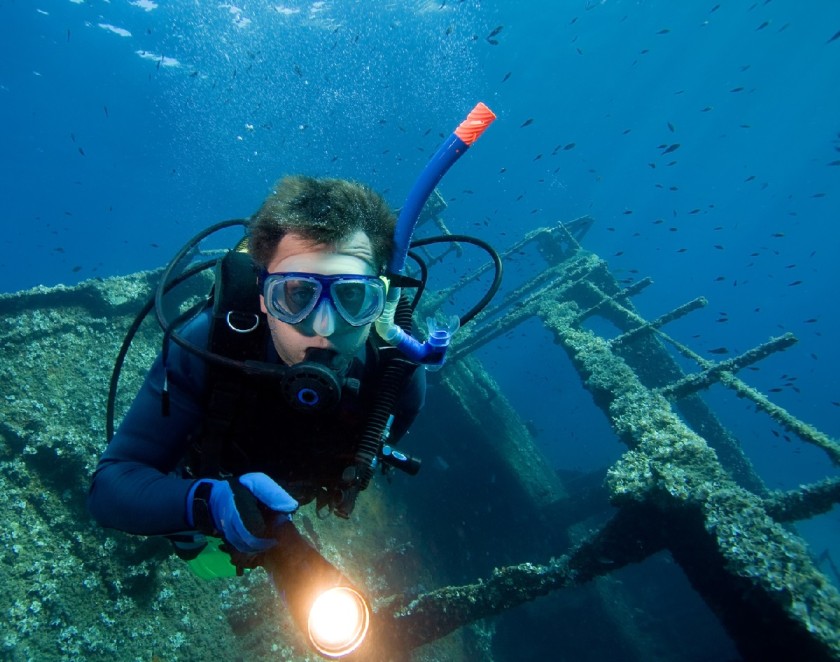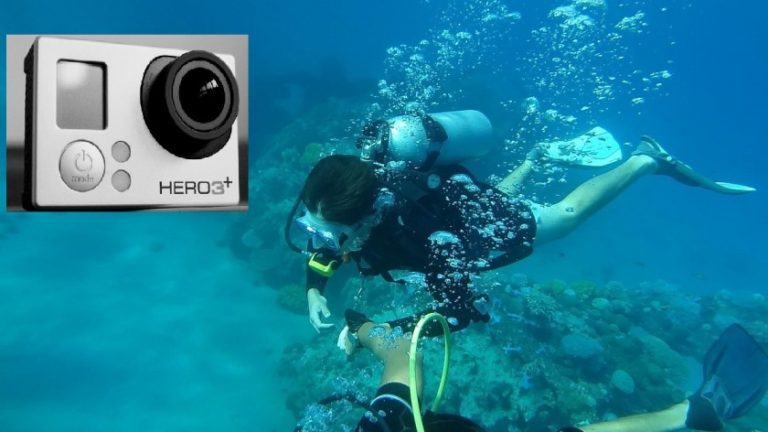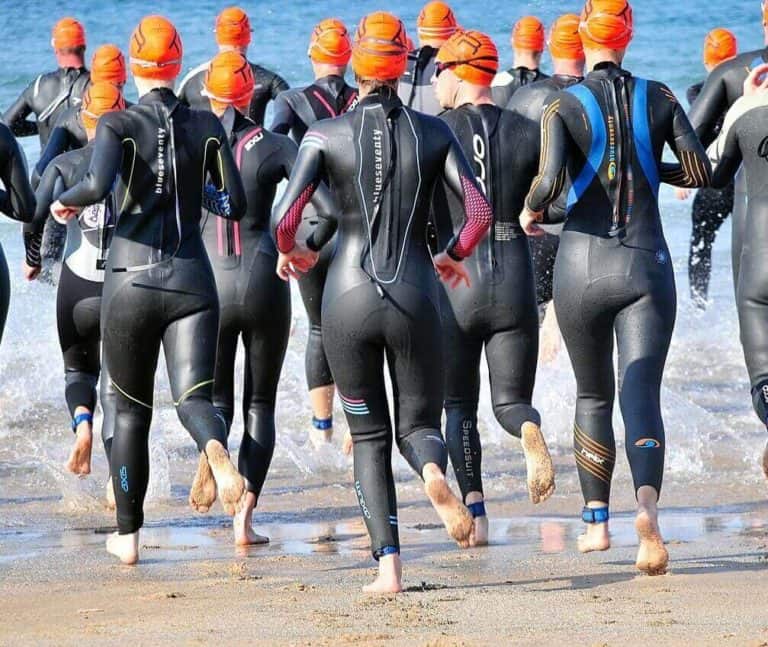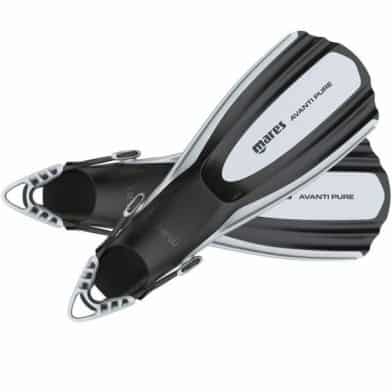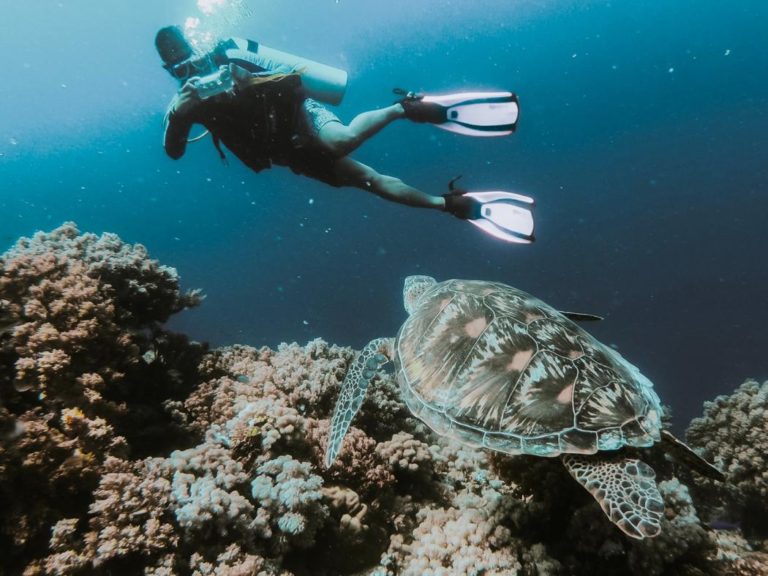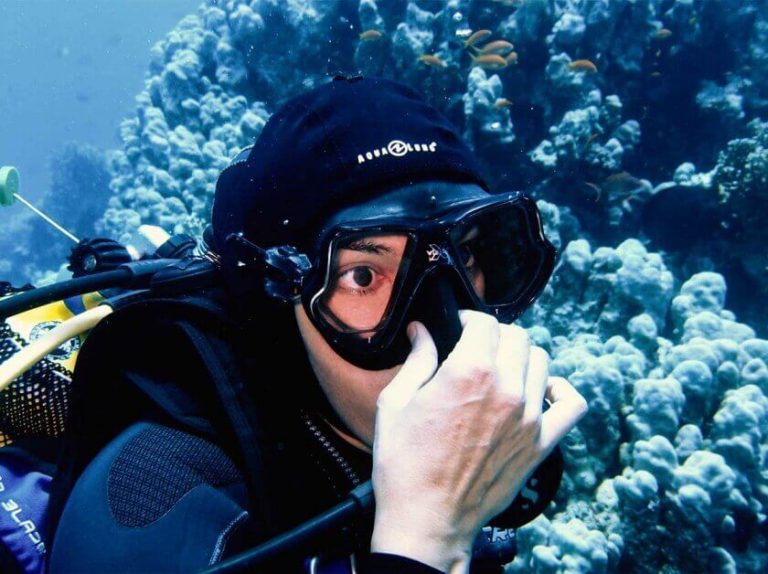Do You Need a Scuba Diving Flashlight
Scuba diving flashlights are essential accessories for a night and deep diving. Some people will tell you that every scuba diver needs a flashlight each time they go diving. As a beginner in recreational scuba diving you may question do you need a scuba diving flashlight?
Yes, you will need a scuba diving flashlight especially if you dive over 20 ft., dive at night, or go cave diving quite often. Recreational scuba divers diving within 20 ft. will not require a flashlight. During the day, the amount of sunlight penetrating these depths is sufficient to explore underwater.
When diving on a cloudy day will the sunlight illuminate underwater? Yes, divers can still see underwater up to 10-15 ft. on cloudy days. Depending on how dull the day looks on the surface, it will also be dull underwater. On such an occasion recreational divers will need a scuba diving flashlight during the day to explore shallow depths.
Scuba diving flashlights are designed to illuminate the underwater world allowing divers to see. Some flashlights are specifically designed to help the diver focus on one section, especially in cave diving.
In the next few minutes, we’ll look into scuba diving flashlights, when and who needs them and also list the best diving light for beginners.
Let’s dive into it!

Do You Need A Dive Light?
When diving over 20 feet scuba divers will need a dive light. Any dive over this depth naturally starts getting darker making visibility impossible.
Natural sun rays penetrate up to 20-30 feet on a bright day. While on cloudy days the distance may dramatically reduce to below 20 ft.
As you dive deeper color illumination reduces. Divers need flashlights in order to illuminate the beautiful colors of all life forms.
It would be a dull diving experience if you can’t see the beautiful marine life forms. The different bright colors play a huge role in stimulating our brain and relaxation.
In recreational scuba diving, divers can carry their illuminating diving flashlights since they only need a clear view of their surroundings and marine forms.
Technical and professional research divers may require two types of diving lights. One wide-beamed dive light (for illumination) and a smaller brighter light (to focus on details).
Wreck and cave divers need two types of flashlights too. When diving into wrecks or caves, the diver may need to focus on cracks or small pathways in caves.
Scuba diving on a hot summer weekend, recreational divers rarely use scuba diving flashlights. The sun illuminates the water making marine life colors pop and visible to the divers.
If you have gone diving in tropical waters the visibility is very clear many feet underwater. Sometimes you can even see some marine forms while on your boat.
Divers wishing to explore everything in detail may carry a narrow beam light (available on Amazon). This helps the diver peek into shallow caves, holes, and ledges, and maybe check details in corals.
While not necessary in recreational scuba diving, there is no harm in carrying a narrow beam flashlight when you go diving.

How Many Lumens Do You Need For Scuba Diving
In recreational and night scuba diving 250-500 lumens are bright enough to illuminate marine life and your surroundings.
Divers going over 60 ft. will need more lumens in their diving lights.
Underwater photographers and videographers need more lumens in their flashlights. A brighter flashlight will give better video or photo lighting.
No one wants to watch a dark scuba diving video or a dark photo of them taken. Clear photos and videos will capture all the beautiful moments that divers can review for many years to come.
Clear videos are great when showing them to non-divers, it can spark an interest in them and motivate them to go scuba diving.
Underwater videographers and photographers use flashlights with over 500 lumens. Some can even have over 2000 lumens depending on their experience and purpose of diving.

How to Choose a Dive Light/Torch
When choosing a dive light the most important factors to consider are water tightness, illumination, and pressure-proof.
Going several feet underwater changes the surrounding pressure. You need a dive light that can withstand water and its pressure.
Look for flashlights with water-tight and pressure-proof labels. It’s also important to conduct your own research before buying. Reading reviews is one good place to start or recommendations from divers like me.
The lumens in your flashlight will depend on the purpose of your dive or how deep you intend on diving.
As mentioned above, 250 lumens are bright enough for recreational scuba diving. But you can choose to go higher, especially if diving in murky water there is no harm done.
The other factors to consider include the style of the light. Diving flashlights come in different sizes, and shapes. Small handheld diving lights are ideal for day diving. Lantern lights are ideal for night diving and canister lights are perfect for wreck and cave diving.
Diving lights are available as handheld lights, mounted lights, arm strap lights, canister lights, marker lights, and videography lights. You can choose to have the light mounted on the forehead or wrist and not worry about holding onto it or it falling off.
Look for a diving light with rechargeable batteries. This way you have less waste output and also save some bucks spent on replacing flashlights.
If you go scuba diving quite often rechargeable batteries are the best way to go.
Other factors may include preferred brands, cost, colors, or model of the flashlight.
What Dive Light Should I Buy?
As a beginner in scuba diving, look for small compact diving lights that are affordable, easy to carry around, watertight, and pressure-proof.
The best hands-off diving light is ORCATORCH D560 Mini dive light. This light is perfect for beginners because it’s rechargeable and comes with backup batteries. It’s easily attachable to your diving mask using an O-ring. The compact size makes it convenient and easy to use. With 630 lumens it can illuminate up to 73m and will withstand pressure up to 150 meters underwater.

The best handheld flashlight is the Genwiss Scuba Diving Flashlight. Has 2000 lumen making it ideal even for wreck, cave, and night divers. The attached security strap goes onto your wrist keeping the light scuba while diving. In case you lose the grip you can relax knowing the flashlight is still intact on your wrist. The aluminum alloy casing protects the flashlight from corrosion, rusting, shattering, and crashing.
Both products are currently available on Amazon.
As a beginner scuba diver, investing in this flashlight will save you hundreds of dollars. You can buy it when you start diving and still use it once you advance into cave diving and wreck diving. The glass is also strengthened to help the torch withstand surrounding water pressure and any other impact experienced.
Do Flashlights Work Underwater
Diving flashlights are designed specifically for use underwater.
On the other hand, normal flashlights are designed for use on land and shouldn’t be used when scuba diving.
A normal flashlight will break under high water pressure, rust from the salty water, and most likely die from water getting inside.
Everyday flashlights are not waterproof meaning once water gets inside they will get destroyed.
100 lumens available in normal flashlights aren’t enough to illuminate underwater. In addition, the illumination angle and distance are limited making them bad choices for use underwater.
Parting Words
We’ve looked at whether you need a scuba diving flashlight, and how many lumens are required in diving lights then concluded with whether a normal flashlight can work underwater.
In most cases, recreational scuba divers don’t really need a flashlight. Divers going over 30ft. will need to carry a diving light as it gets darker the deeper you dive.
Investing in a diving light is great. This will help you illuminate your surroundings making your diving experience even better when it gets darker.
Happy diving!

